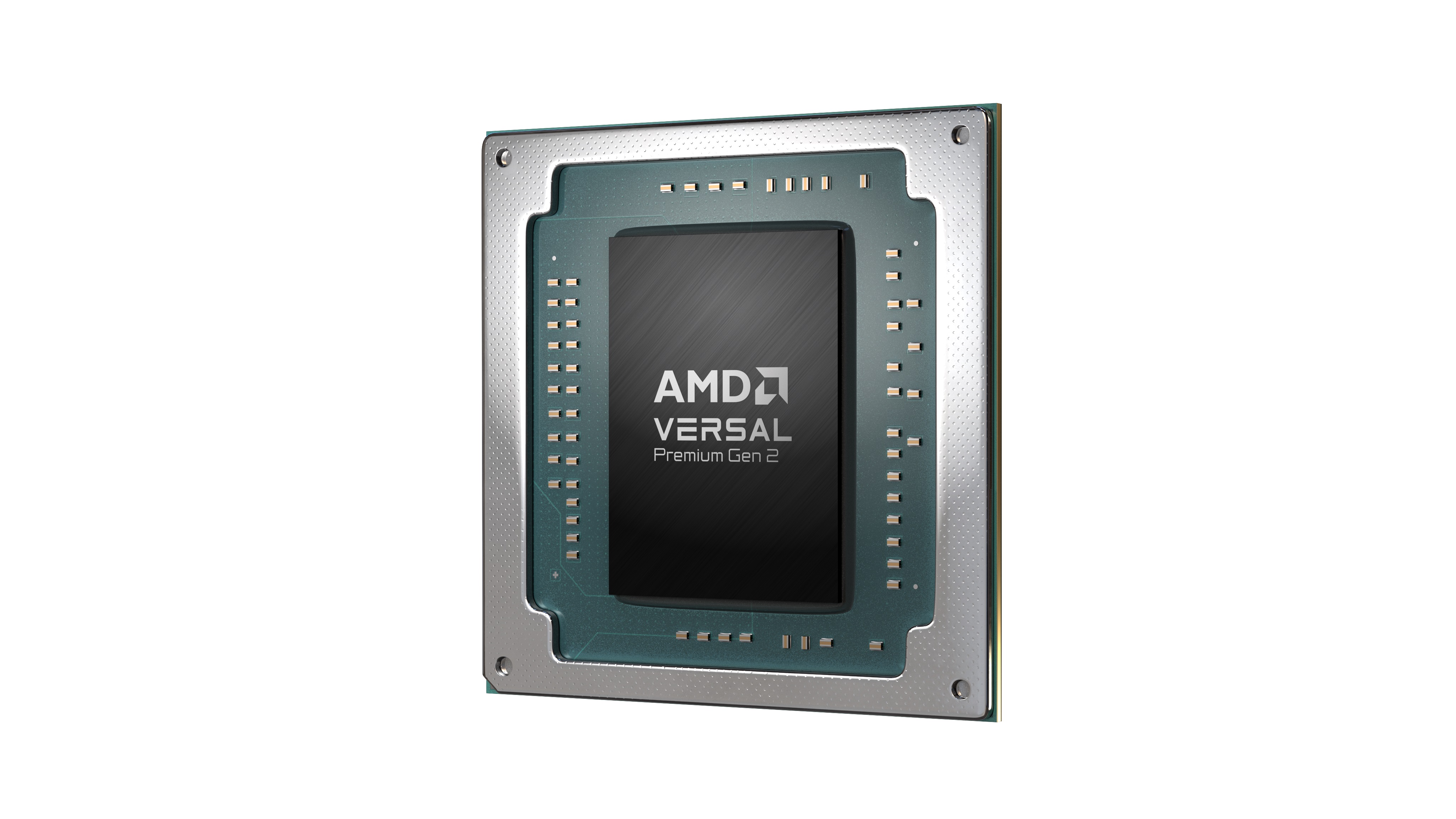AI 발전 추세는 데이터의 대역폭과 전송속도 등 데이터 이동 및 액세스에서 효율성을 제고하는 데 초점이 맞춰져 있다. 특히 최근 DDR5의 지배적인 시장 점유 증가와 CXL 메모리라는 새로운 타입의 D램에서 212% 고성장율이 전망됨에 따라 데이터 집약적인 애플리케이션에서 성능을 만족하는 칩 솔루션 활용이 두드러지고 있다.

▲AMD 2세대 버설 프리미엄 시리즈 / (이미지:AMD)
CXL 3.1·PCIe Gen6·LPDDR5X 채택
샘플 26년 초 공개, 하반기 출하 예정
AI 발전 추세는 데이터의 대역폭과 전송속도 등 데이터 이동 및 액세스에서 효율성을 제고하는 데 초점이 맞춰져 있다. 특히 최근 DDR5의 지배적인 시장 점유 증가와 CXL 메모리라는 새로운 타입의 D램에서 212% 고성장율이 전망됨에 따라 데이터 집약적인 애플리케이션에서 성능을 만족하는 칩 솔루션 활용이 두드러지고 있다.
AMD가 12일 미디어 사전 브리핑을 통해 FPGA 업계 최초로 CXL 3.1과 PCIe 젠6 및 LPDDR5X를 하드 IP 형태로 지원하는 2세대 버설 프리미엄 시리즈를 공개했다.
이러한 차세대 인터페이스와 메모리 기술은 프로세서와 가속기 간의 데이터 이동 및 액세스를 효율적으로 처리하는 데 기여한다.
CXL 3.1과 LPDDR5X는 더 많은 메모리 자원을 보다 빠르게 활용할 수 있어 데이터센터, 통신, 테스트 및 측정, 항공우주 및 방위 산업 등 데이터 집약적 애플리케이션에서 요구하는 실시간 프로세싱 및 스토리지 요구사항을 충족한다.
마이크 라더 AMD 제품 마케팅 시니어 매니저는 “AMD는 데이터 집약적인 성능을 요구하는 애플리케이션과 시장을 공략하고 있다”면서, “우주·항공·방산 시장은 소형 폼펙터, 통신 시장은 AI 기반 6G RAN 가속화, 데이터센터 시장은 AI 기반 맞춤형 네트워킹 및 기업용 SSD, 테스트 및 측정 시장은 프로토콜 분석기 및 카메라 센서 등을 지원한다”고 말했다.
2세대 버설 프리미엄 디바이스는 최신 PCIe 젠6 및 CXL 3.1을 통해 호스트 CPU-가속기 간의 고대역폭 연결을 지원한다. 또한, 시스템 개발자는 2세대 버설 프리미엄 시리즈와 AMD 에픽(EPYC) CPU를 동시에 활용해 CXL/PCIe를 통해 고성능 CPU에 연결된 최신 AMD FPGA 기반 디바이스를 활용할 수 있다.
AMD는 2세대 버설 프리미엄이 동급 경쟁 제품 대비 강력한 장점으로 메모리 성능을 손꼽았다. 최대 속도 8,533Mb/s로 현재 가용한 가장 빠른 메모리 규격인 LPDDR5X를 통해 메모리 대역폭을 개선해 데이터 전송 및 실시간 응답 속도를 향상시켰다.
또한, CXL 메모리 확장 모듈과의 연결을 통해 LPDDR5X 메모리만 사용할 때보다 최대 2.7배 더 높은 총 대역폭을 활용할 수 있다. 이를 통해 2세대 버설 프리미엄 시리즈는 여러 가속기로 확장 및 동적 할당이 가능한 메모리 풀링(Memory Pooling)을 지원함으로써 메모리 활용도를 최적화하고, 메모리 대역폭과 용량을 증가시킬 수 있다.
2세대 버설 프리미엄 시리즈 적응형 SoC는 여러 디바이스로 메모리 풀을 동적으로 할당해 MH-SLD(Multi-Headed Single Logic Device)의 메모리 활용도를 개선한다. 이를 통해 패브릭이나 스위치를 사용하지 않고도 동작이 가능하며, 최대 2개까지 CXL 호스트를 지원한다.
보안 기능이 강화된 2세대 버설 프리미엄 시리즈는 하드 IP 형태로 통합된 PCIe IDE(PCIe Integrity and Data Encryption)를 지원하는 FPGA이다. 하드웨어 구조의 DDR 메모리 컨트롤러에 내장된 인라인 암호화는 휴면 데이터를 보호하며, 400G의 고속 암호화 엔진은 디바이스가 최대 2배 속도로 사용자 데이터를 보호한다.
AMD의 2세대 버설 프리미엄 시리즈 개발 툴은 2025년 2분기에 출시될 예정이며, 반도체 샘플은 2026년 초에 제공될 예정이다. 양산 제품은 2026년 하반기부터 출하될 예정이라고 밝혔다.
